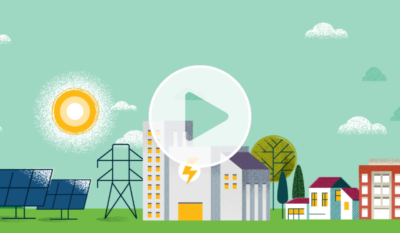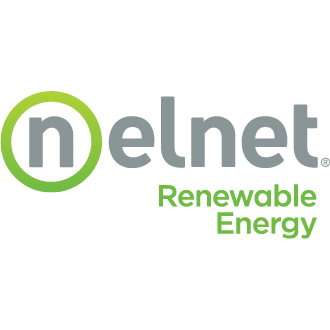What Is Community Solar?
Community solar farms (also referred to as projects) are large, commercial-grade solar arrays shared by multiple community subscribers who receive credits on their electricity bills for their share of the power produced. Community solar farms offer residents, businesses, and municipalities an easy way to support clean, renewable energy AND save up to 10% on their monthly energy costs (with no change in utility provider). It’s easy, which is one of the many benefits!
How Community Solar Works As a subscriber to a local community solar farm, you’ll receive energy from your utility as usual, but you’ll also receive solar credits on your utility bill for the energy generated by the solar farm. These solar credits provide savings on your electricity costs. Depending on the solar farm, you may receive two bills (one from your utility company and one
As a subscriber to a local community solar farm, you’ll receive energy from your utility as usual, but you’ll also receive solar credits on your utility bill for the energy generated by the solar farm. These solar credits provide savings on your electricity costs. Depending on the solar farm, you may receive two bills (one from your utility company and one
from the subscription manager or developer), which is referred to as dual billing. Or, you may receive just one bill from your utility company (referred to as single billing). Either way, you’ll receive the same solar credits – leading to savings on your electricity costs of up to 10%.
Community Solar Benefits
The benefits of community solar are numerous – for those who participate and for the environment. Community solar:

Is accessible. Anyone can support clean energy use by signing up for community solar. Many businesses, renters, and homeowners don’t want to or can’t install rooftop solar – or can’t afford to pay for rooftop solar installation, maintenance, and insurance.

Saves money. Subscribers save up to 10% on their monthly energy costs with no upfront investment.

Reduces our carbon footprint. Community solar supports the production of clean energy that doesn’t emit greenhouse gases, create pollution, or increase climate change – helping our environment. You can be part of making our world better today and for the future.

Supports ESG (Environmental, Social, Governance) initiatives. ESG programs are becoming a core business focus for increasing value through customer, employee and vendor awareness and satisfaction of the business’s sustainability commitment.
Why Community Solar Over Traditional Solar?
Community solar is rapidly growing as an easy way for individuals (homeowners or renters), businesses, and municipalities to save money while supporting the use of clean energy. Community solar is an easy solution to enjoy the benefits of solar energy without the costs and/or installation complexities of rooftop/onsite solar.
Rooftop/onsite solar is not an option for many homeowners, renters, and businesses, as solar panel installation isn’t possible with the rooftops of certain structures. You need to own your roof to install panels – and permits, installation, and insurance can be cost-prohibitive for many people.
All of these reasons – and more – explain why community solar is becoming so popular.
- Location doesn’t receive enough sun
- Physical obstacles blocking the sun
- Restrictive costs and credit requirements
- HOA restrictions against construction
- Property is rented not owned
- Roof is…
- Too old
- Doesn’t have enough space
- Shaped incorrectly
- Faces the wrong way
Why Community Solar Over Traditional Solar?
Community solar is rapidly growing as an easy way for individuals (homeowners or renters), businesses, and municipalities to save money while supporting the use of clean energy. Community solar is an easy solution to enjoy the benefits of solar energy without the costs and/or installation complexities of rooftop/onsite solar.
Rooftop/onsite solar is not an option for many homeowners, renters, and businesses, as solar panel installation isn’t possible with the rooftops of certain structures. You need to own your roof to install panels – and permits, installation, and insurance can be cost-prohibitive for many people.
All of these reasons – and more – explain why community solar is becoming so popular.
For More Information
If you have additional questions about community solar or are interested in signing up for a local community solar farm, contact:
Kate Seifert
Nelnet Renewable Energy
Kate.Seifert@Nelnet.net
612.239.7131

